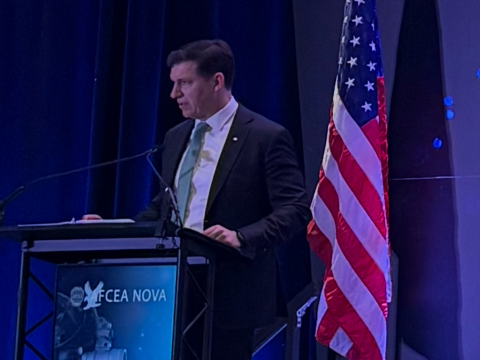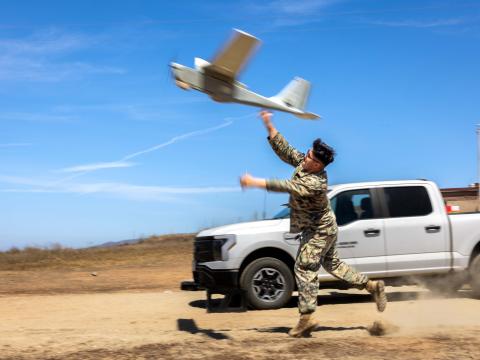New National Security Strategy: New Cold War
The White House has laid out terms for competition—and possible cooperation—with China and Russia. It presents a view of a fierce new cold war in human affairs and, at the same time, finds common goals on natural and environmental issues.
“We are now in the early years of a decisive decade for America and the world. The terms of geopolitical competition between the major powers will be set,” read the National Security Strategy document published on Wednesday by the Biden administration.
The document presented a clear view dividing democracies against autocracies. “The People’s Republic of China harbors the intention and, increasingly, the capacity to reshape the international order in favor of one that tilts the global playing field to its benefit,” according to the strategy. Russia was seen not so much as an international order threat, but just as a bully: “Russia’s brutal and unprovoked war on its neighbor Ukraine has shattered peace in Europe and impacted stability everywhere, and its reckless nuclear threats endanger the global non-proliferation regime.”
The authoritarian field was characterized by, “autocrats are working overtime to undermine democracy and export a model of governance marked by repression at home and coercion abroad.”
To confront these challenges the U.S. will continue its technological development, invest in its human capital, strengthen its military and deepen cooperation with allies.
In terms of industrial policy, desire to enhance high tech businesses and recent global logistics hiccups demonstrated the need to take a holistic approach: “We are securing our critical infrastructure, advancing foundational cybersecurity for critical sectors from pipelines to water, and working with the private sector to improve security defenses in technology products,” the document stated.
Russia's hacking activities were identified as the most significant cyber risk to infrastructure and the prime contender in cyber defense.
The document takes a strategic look at recent legislation. Public investments in transportation, broadband, clean water, and energy infrastructure, had been touted as part of pandemic relief packages, and described now as a national security component.
The CHIPS (Creating Helpful Incentives to Produce Semiconductors) act, authorizing $280 billion for semiconductor research and development in the U.S., was also cast as an investment in “advanced computing, next-generation communications, clean energy technologies, and biotechnologies.”
After calls against rivals obtaining technology developed with U.S. efforts, the document addresses the different forms in which intellectual property was acquired through unlawful ways: “We are countering intellectual property theft, forced technology transfer, and other attempts to degrade our technological advantages by enhancing investment screening, export controls, and counterintelligence resources."
The military will act urgently to sustain and strengthen deterrence, with the PRC [People's Republic of China] as its pacing challenge
The document also stresses the importance of NATO and global military cooperation: "Our NATO and bilateral treaty allies should never doubt our will and capacity to stand with them against aggression and intimidation.”
Still, one rival takes precedence. “The military will act urgently to sustain and strengthen deterrence, with the PRC [People s Republic of China] as its pacing challenge.”
The document points out opportunities and challenges around the world and also includes space. “We will enhance the resilience of U.S. space systems that we rely on for critical national and homeland security functions,” said the document, spelling out security interests beyond Earth.
Climate change, pandemic prevention, food security, nonproliferation, fighting terrorism and transnational crime were identified as areas of potential cooperation globally.




Comments